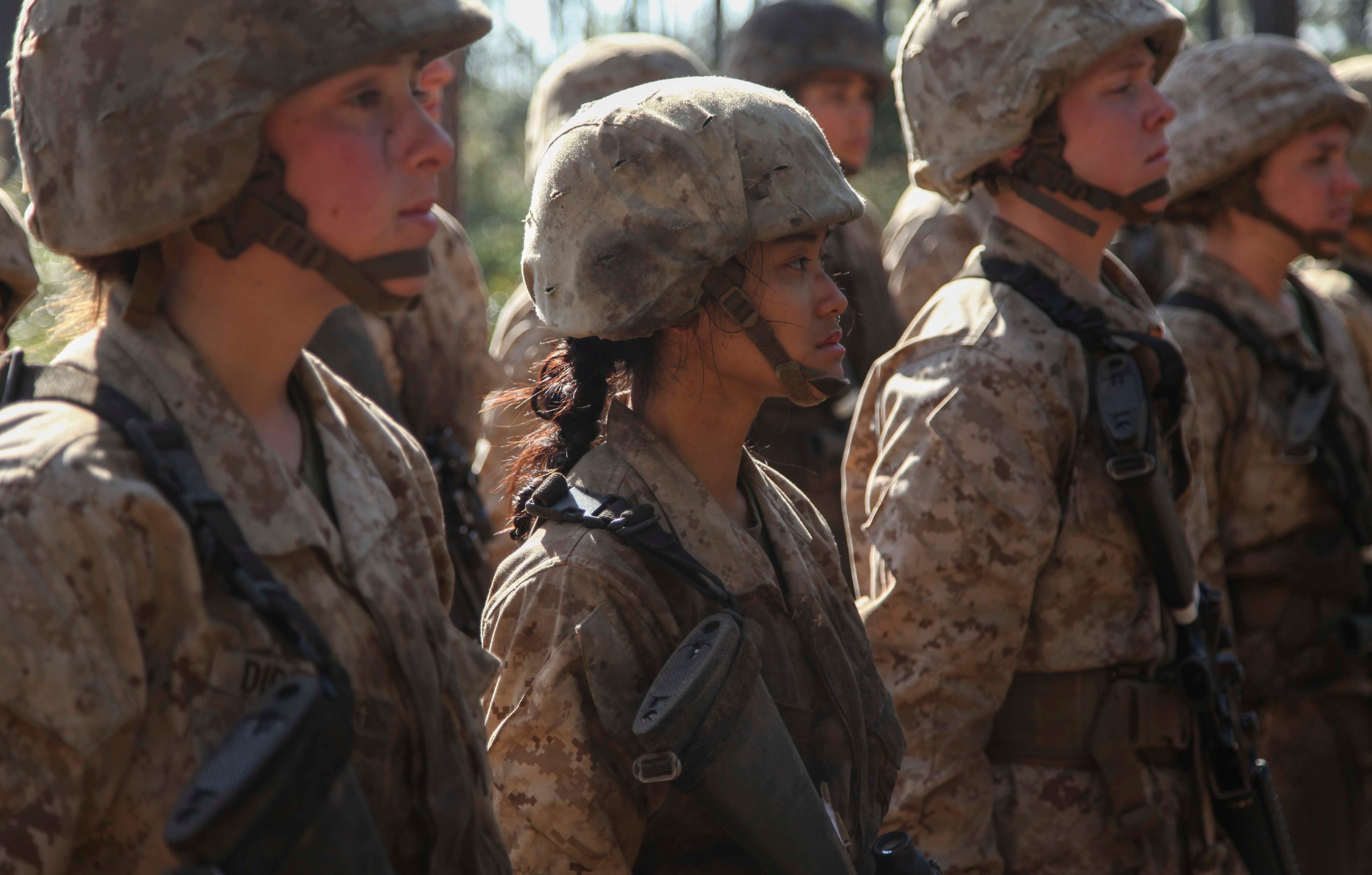Editor’s note: Marine Corps Times first reported that Hotel Company, 2nd Recruit Training Battalion, at Parris Island, South Carolina, was the second boot camp class to be partially gender-integrated. The Marine Corps later came back and said that Delta Company, 1st Recruit Training Battalion, actually was the second company to be gender-integrated and Hotel is the third company.
A Marine company with South Carolina’s 2nd Recruit Training Battalion will soon see male and female recruits training next to each other, the Marine Corps confirmed Wednesday.
This will be the third time a historically all-male Marine Corps recruit company has been partially gender-integrated.
The first — India Company, 3rd Recruit Training Battalion — graduated five platoons of male Marines alongside one platoon of female Marines in March.
Delta Company, 1st Recruit Training Battalion — the second company to be integrated — started training a few weeks ago under the same model, with five platoons of male recruits and one platoon of female recruits, the Marine Corps said.
“Company H will be integrated when it begins training at the end of this week,” Capt. Bryan McDonnell, a spokesman for the Marine Corps recruit depot at Parris Island, South Carolina, told Marine Corps Times in an email.
RELATED

Traditionally, male and female units are separated at the recruit depot, with 4th Recruit Training Battalion as the sole female recruit unit.
Like the previous limited gender-integrated Marine companies, Hotel Company will share the same barracks, but each platoon will have its own squad bay for Marines to sleep, shower and do platoon and individual training, McDonnell said.
Similarly, many training activities outside of the squad, such as close-order drill and Marine Corps Martial Arts Program training, will be done at the platoon level.
But, when the companies come together for morning physical training, attempting the obstacle course or the many hours of classroom study, female and male platoons will be side by side.
For years, Marine leaders have insisted female Marines especially do better if they train in a separate unit.
But the Marine Corps also has come under serious pressure as it is the only U.S. service branch without a coed boot camp.
During his confirmation hearing in May, Marine Corps Commandant Gen. David Berger told senators that the first company’s integration “went great.”
The commandant had said the Corps would have another look at the gender integration and perhaps do another, “next year” in 2020. Delta and Hotel Companies will have started training in 2019.
Berger suggested in May that the Marine Corps would be ready to integrate future companies for the sake of efficiency, especially during winter months when recruit training company sizes dwindle.
“Combined training may continue to be conducted based on logistical and operational requirements,” an information paper from the Defense Advisory Committee on Women in the Service briefing in September said.
Brig. Gen. James Glynn, commander of the depot at Parris Island, South Carolina, wasn’t sure if the first gender-integration experiment would ever take place again, Marine Corps Times previously reported.
“The jury is still out on that,” Glynn told AP. “As conditions permit in the future, we could pursue it.” But, he also said, “No one looked at this and said we don’t want to do it again.”
The Corps contends that Marines train by platoons and has been hesitant about changing that model, Marine Corps Times previously reported.
“Our drill instructors stay with their recruits 24 hours a day, seven days a week the entire time they are there,” former Commandant Gen. Robert Neller told reporters at a televised Pentagon briefing in May 2018. “So I am not considering having men and women live together in an open squad bay.”
McDonnell told Marine Corps Times earlier in 2019 that in addition to how many recruits are shipped, the Corps also will consider facility availability and training personnel availability when determining which companies to integrate.
“Our mission is to make Marines, and our focus remains on transforming men and women who have chosen to serve their country into United States Marines,” McDonnell said.
Overseas operations reporter Shawn Snow contributed to this report.





